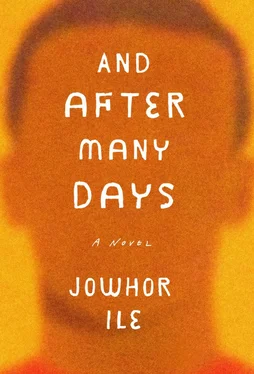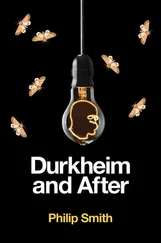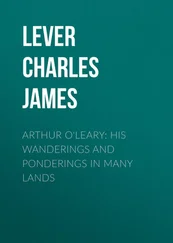“Come here,” Bendic said, and Ajie sat beside him on the bed. “So your mother is taking you to church?”
Ajie nodded. His eyes strayed into the garden right outside the window. Ma grew everything from vegetables to herbs and flowers. Green peppers stood between corn and okra, and garden eggs next to her queen of the night.
It was Ma who first explained to Ajie, long before any of his primary school teachers did, the concept of photosynthesis. Photosynthesis, she said to him slowly, was the process by which green plants produced their own food with the aid of sunlight. Ajie was intrigued; the words stuck to his mind indelibly. It was Ma who first told him the universe was billions of years old.
“But God made the world in seven days,” six-year-old Ajie said, trying to wrap his head around the gaping discrepancy.
“That is true, too,” Ma replied. “But the Bible has to be interpreted properly. People sometimes forget. You have to use the Bible to interpret the Bible. There is another verse that says, One day unto the Lord is like a thousand years. One day to God can mean millions, billions, of years for humans.”
“Billions, Ma?” Ajie asked.
“Yes, billions. Science tells us our universe is thirteen point eight billion years old, nearly fourteen billion.”
“Fourteen billion. How many zeros does that have?”
Ma smiled. “Nine. I can show you that later, Ajie.”
Together, they carried out the experiment to prove that green plants would stretch in the direction of sunlight. Ma said creepers illustrated this point best, so they planted some bean seeds in a pot and placed it by the toilet window and observed how, days later, the stem stretched outside, toward the source of light. Ajie was only six, and this certainty of process, of order in nature, made him burn with a zeal that could rival that of any pioneer or prophet. He shoveled in the garden; he dug holes in the ground and dropped seeds in them and watered the spot until the plant sprouted. For two months he carried on until he lost interest in the work. The plants survived without his care for a while but eventually fared badly, and weeds ran amok.
“Quick, quick, everyone, get in the car,” Ma called out. “Don’t forget to bring a Bible with you.” Paul wanted to change his trousers because he had just noticed the seams of the inner thigh had come loose. Ajie went into the bathroom and shut the door, and Ma flung a scarf at Bibi and then grabbed the car keys from the dining table. “Let me not wait for any of you,” she threatened as she headed out to the car.
Since the start of that holiday, church attendance had become a regular thing in the household. Before then the Utus did only Christmas services or when someone invited them for a baby dedication.
Today they were honoring an invitation from one of Ma’s colleagues who was having a Thanksgiving service after she miraculously survived a boat mishap on Bonny River. She was one of six survivors out of the initial twenty-two people who had embarked on the journey.
The church was packed full with people, and music came from a group of keen musicians who wore shiny blue satin tops and black trousers and skirts.
When the time came, Ma’s colleague stepped out toward the stage. Ma nodded at Bibi when she asked if that was her colleague. The woman’s blouse was the color of egg yolk and had a glazed sheen; her blue wrapper was heavily patterned with sequins, tiny circular mirrors, and dangling beads. As she walked toward the stage, another woman next to Ma shouted, “Hallelujah!” in anticipation of the well-known testimony. Ajie saw raised Bibles in the air, and there were scatterings of applause from different corners of the church. A lancing sound came from the microphone as one of the technical guys handed it to her. He then took it back, tapped on the mouthpiece one, two, gave a nod to the guys at the console, returned the mic to the woman, and then scurried away.
“Praaaaaaaa-ise the Lord!” She dragged out the words until the congregation was clapping again, standing and lifting their hands in praise, waving handkerchiefs in the air. “If it had not been for the Lord on my side,” she charged, “I say, if it had not been for the Lord on my side, brethren, tell me, where would I be?” Her emotions got the better of her as she choked up, and some people in the congregation sighed. Ajie saw a tall man standing with his arms folded over his chest, his eyes fixed on the stage as if he had been struck by something. Ajie looked at him and thought that maybe he, too, had been saved from a boat mishap.
“Brothers and sisters, I don’t know where to start.” She took a deep breath to gather up her feelings, then began the story.
Paul nudged Ajie and told him to tap Ma. He mouthed some words to her and then stood up to go to the toilet. Bibi said she needed to go, too, and Ma refused and snapped, “Pay attention!” and Bibi just put her head down and continued doodling in her jotter.
“What I know is that one minute I was sitting on the boat, the next I was in the river. I am not the best swimmer in the world, but my God, the God who delivered the children of Israel from captivity, the God who rescued Daniel from the den of lions…” The whole church hall thundered with applause as the woman concluded, “He delivered me. He did not forsake me in my hour of need.” People stood up, waved their hands in the air, and shouted words of praise to God. After a while, the clapping died down, but then an uproar of thanksgiving would erupt from another corner of the church.
“That is what the hand of God can do!” the pastor said, and this charged the congregation. “He is the I Am that I Am, the unchangeable changer. He has spoken in his word that the sun shall not smite thee by day nor the moon by night.”
“Amen!” the hall reverberated. The pastor was silent for a while and then started cooing into the microphone in his deep dulcet tone: “Amen, and amen, we bless the Lord. Amen and amen.” And slowly, quiet was restored for the delivering of the Word.
A male usher in a black suit, white shirt, and red tie hurried to the stage with a fat Bible and a notebook, which he placed on the lectern, performing a slight bow to the pastor before hurrying down the stage.
Back at home after the service, the Utus had jollof rice and chicken for lunch and soft drinks. Bendic asked Paul to tune the JVC to Radio Rivers 2, where Chinemerem Nwoga was presenting her usual Sunday classical music program. Today’s edition was about the eighteenth-century pianist Chopin. The presenter played her personal favorites from his work and talked about the pianist’s struggle with ill health and the devastating love affairs that might have inspired his music.
Ajie sat on the floor beside the couch. The cold Sprite burned the back of his throat as he gulped. The bottle made a sucking sound, then fizzled and bubbled as he set it down. “I know it was the price for our redemption and all, but if, according to the memory verse quoted in church today, for our sake, it ‘ pleased God to bruise His own son, Jesus,’ does that not then make God a sadist?”
“What did you say?” Ma’s eyes narrowed. Bendic was sitting in his chair and didn’t lower his newspaper. Ajie’s toes played with the velvet buttons on the side of the couch.
“I said, eh, does it make God a sadist then, since it pleased Him to bruise His son?”
Ma’s slippers whizzed across the parlor but missed Ajie’s head by a wide mark. Ajie sprang up. Ma followed, caught him by the arm, and gave him three clean slaps on the back, tai! tai! tai! They stood there before each other, stunned. Ma could have given more slaps had she wanted: Ajie’s feet were glued to the floor like those of an animal dazed before the full beam of a car. He did not know how to run from the hands of his parents. They had never hit any of the children before.
Читать дальше
